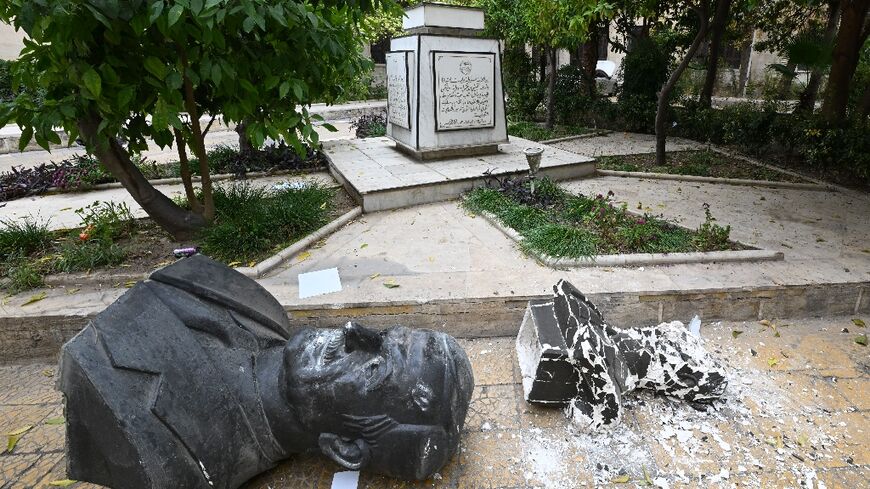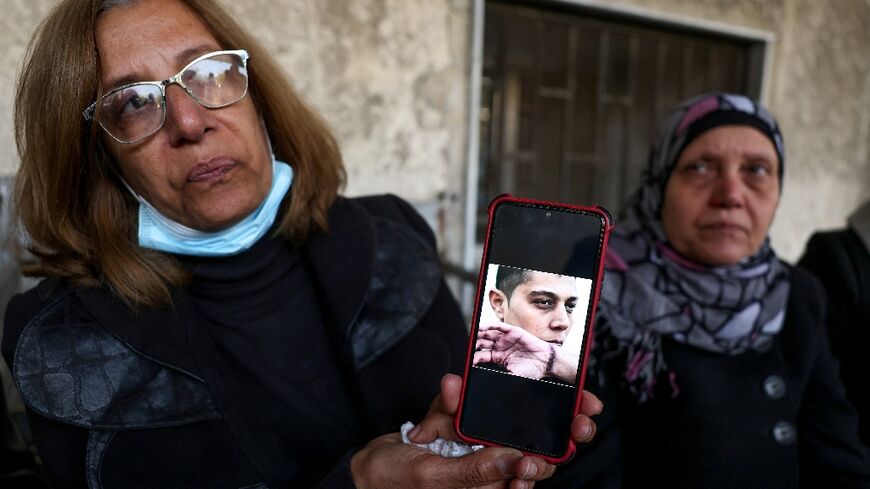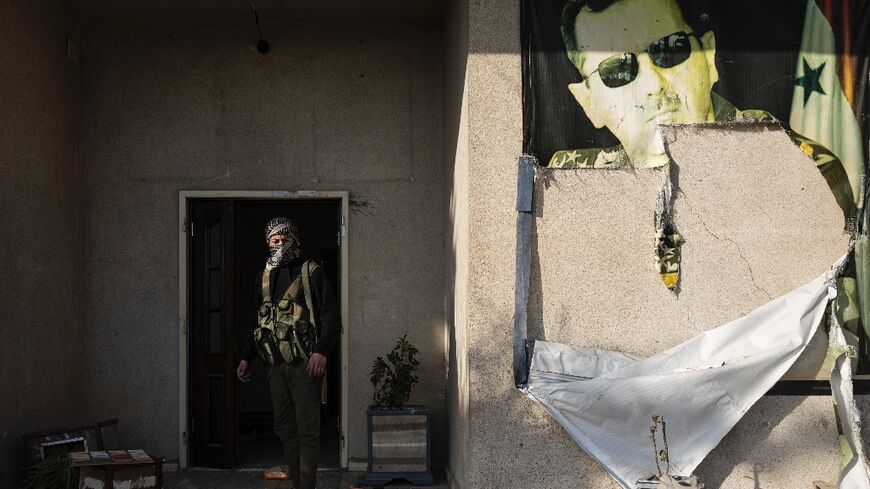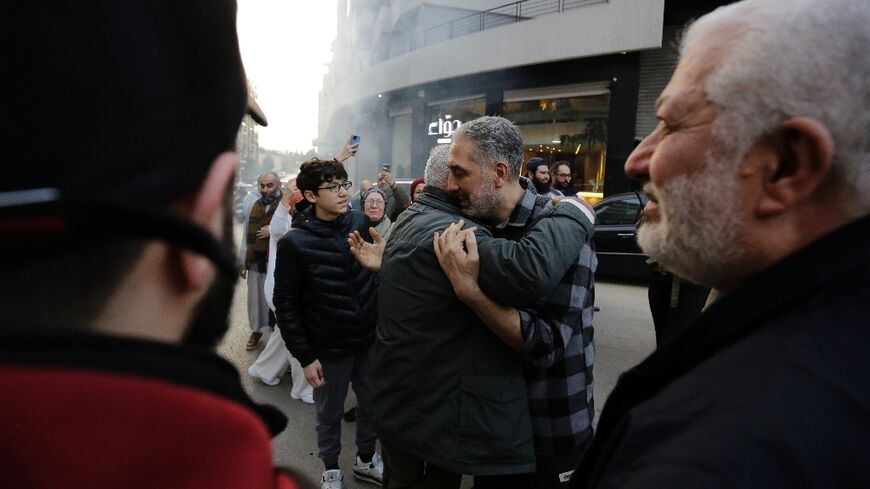Hundreds of Syrians lay anti-Assad activist to rest

Hundreds of Syrians on Thursday buried activist Mazen al-Hamada, whose body was found alongside 35 others in a hospital morgue near Damascus following the ousting of longtime leader Bashar al-Assad.
Hamada had been jailed twice under Assad, the first time in 2011 when the Arab Spring protests erupted in the country, before he managed to escape and flee to the Netherlands in 2014, where he sought asylum.
He made a surprise return to Syria in 2020, amid reports that he had been lured back by the authorities, and was swiftly detained upon arrival at Damascus airport never to appear again.
Earlier this week, the bodies of over 30 people were found in a hospital morgue in the Damascus suburb of Harasta, many of them bearing signs of torture.
Among them was the body of Hamada, who was identified by his family through pictures.
On Thursday, outside the Al-Mujtahid hospital in Damascus, hundreds mourned Hamada's death, whose ordeal was emblematic of the atrocities suffered under Assad rule.
"We won't forget your blood Mazen," they called out, raising the three-star flag that was popular among the opposition throughout Syria's civil war and has since been adopted by the country's new rebel leaders.
Many of those present attempted to comfort Hamada's mother, whose cries rang out through the crowd.
"I contacted a doctor and sent him a video and photo... he told me he was executed about 10 days ago," his sister Amal told AFP.
During his time in the Netherlands, Hamada had publicly testified on the torture he faced while in prison in Syria.
"They destroyed the good memories, they destroyed my childhood, my youth," Hamada was seen saying in a widely circulated video of an interview he gave at the time.
According to Diab Serriya, a member of the Association of Detainees and Missing Persons of Saydnaya Prison, Harasta was a final destination where those who had died in custody "were gathered before being buried in mass graves".
Some 60,000 people died of torture or as a result of the conditions of their detention in prisons under Assad rule since the civil war erupted in 2011, according to the Syrian Observatory for Human Rights.
Rebels led by the Islamist militant group Hayat Tahrir al-Sham launched a lightning offensive on November 27, sweeping through a series of key cities before capturing the capital on Sunday.





